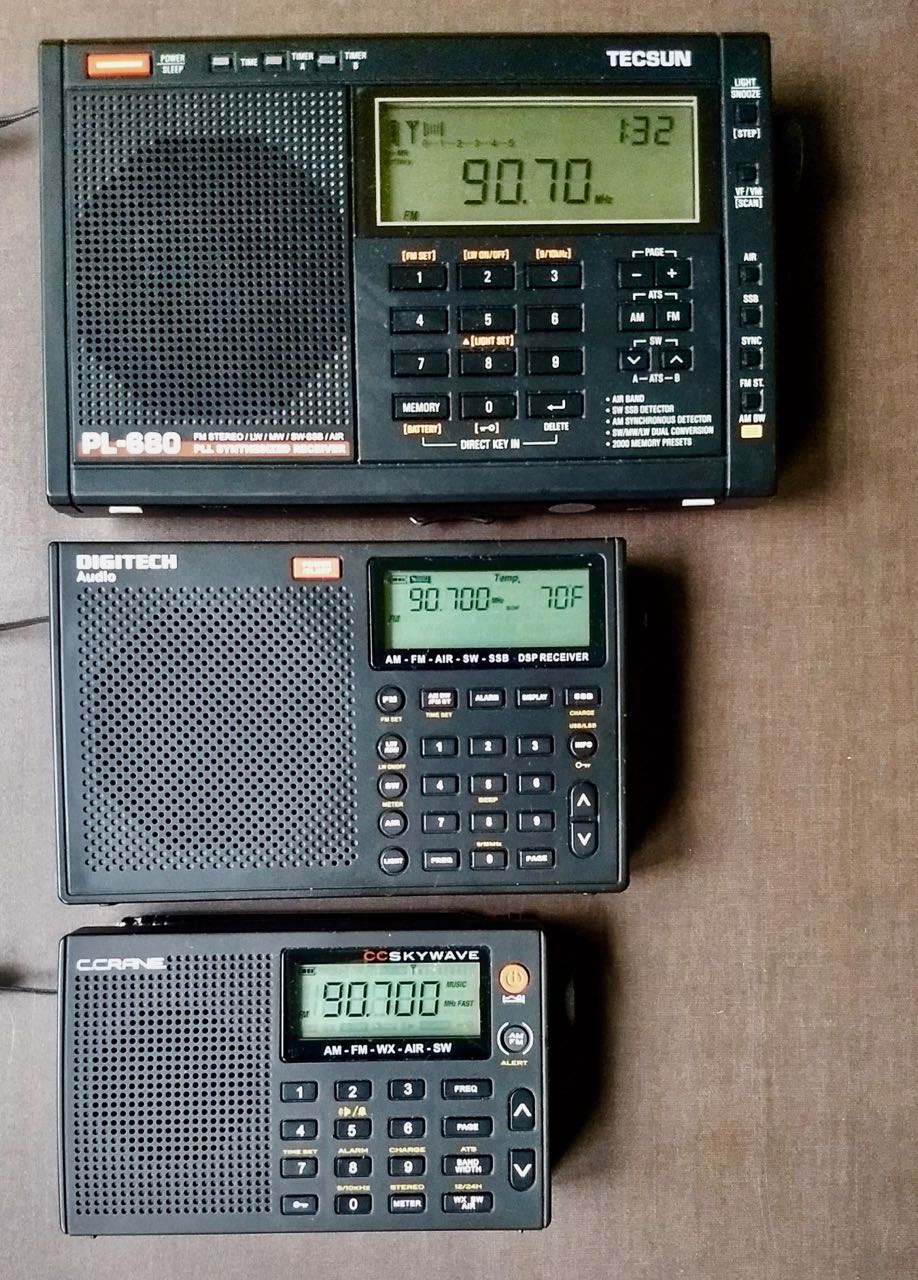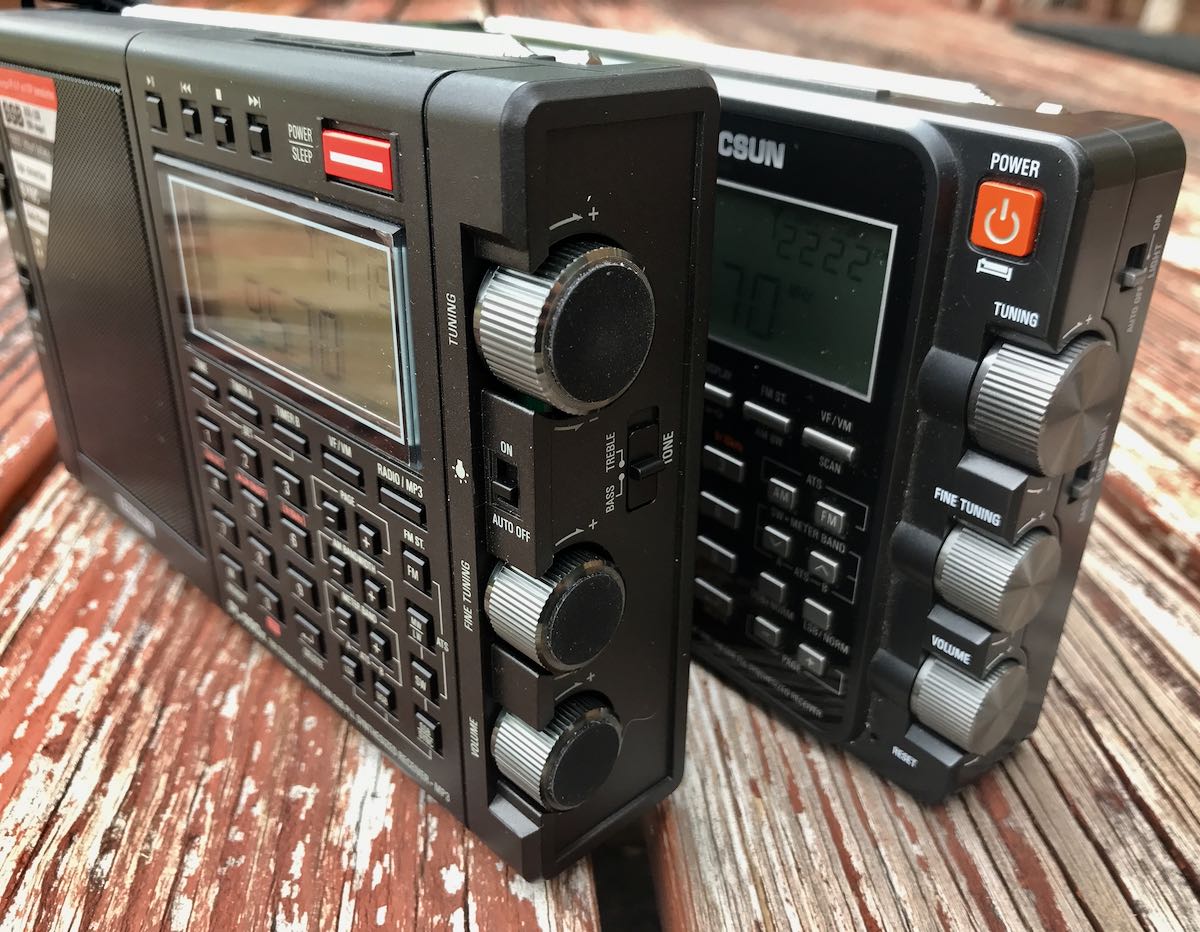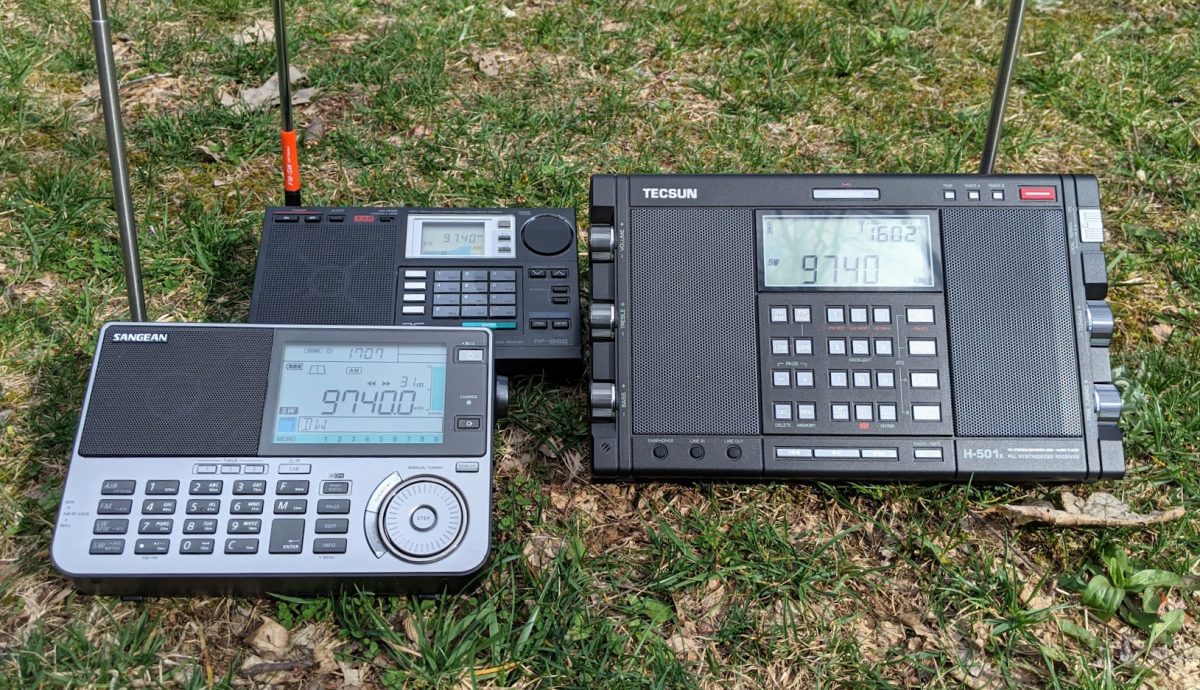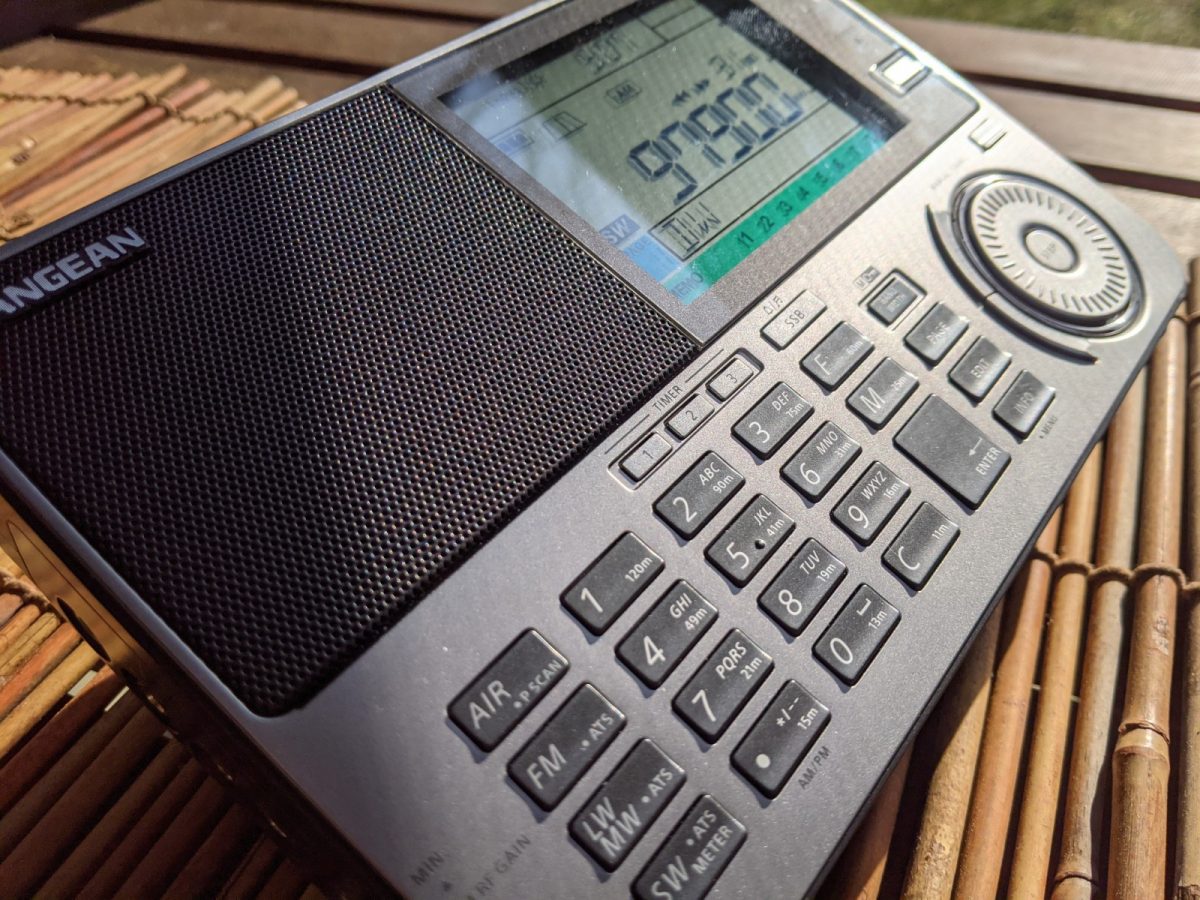I’ve been running the SWLing Post for fourteen years (!!!) and during that time I’d say that one of the top three questions I receive is a variation of “Which radio is better?” followed by a list of radio makes and models.
Sometimes that question is easy to answer because the reader is new to the world of shortwave, they only have two choices, and one is an obvious winner.
In truth, though, that’s very rare.
Most of the time–and I’m speaking from having received hundreds of these questions–I’m asked to choose between a list of radios that the reader has thoroughly researched, uncovering radios DXers and enthusiasts consider to be the best in price class.
They’ve already read numerous reviews, created spreadsheets comparing features/specifications, and they’ve weighed all of the pros and cons by price class.
But they can’t decide.
Analysis paralysis
We’re ready to invest a bit of money in a new radio and there are many good options, but there’s no one stand-out…no “perfect” radio with everything we seek.
It’s a slippery slope. We start our research with some obvious choices. We can’t decide which is best, so we broaden our research, we take deeper and deeper dives, but the more we research, the more confused we become.
Sound familiar? (Trust me: you’re not alone.)
I remember receiving an email once from someone with a list of two dozen sub $150 radios on a multi-tab spreadsheet.They had every feature and specification listed for comparison. They wanted to know which of these radios was “the best.”
I can’t answer this questions for a very good reason.
It’s all about personal preference
 My favorite radio from a list of twenty four will likely not be your favorite radio.
My favorite radio from a list of twenty four will likely not be your favorite radio.
Enjoyment of a radio has everything to do with you as the radio’s operator.
Ask yourself, “What’s my main goal–?”:
- DXing?
- Weak signal work?
- Band-scanning?
- Pirate Radio hunting?
- Travel?
- Emergency communications?
- Casual broadcast listening?
- Digital mode decoding?
- Scanning?
- Mediumwave DXing?
Look at your options with this goal being given the priority.
A rather simple way to avoid analysis paralysis
If you’ve thoroughly researched multiple options, the likelihood is that overall performance between the models is comparable. Sure, some models might have better AGC, better sync, finer tuning, a better encoder, or better sensitivity, etc. but the overall performance package is similar else there’d be no difficult decision to make.
My advice is to pick the radio that you believe you’d enjoy the most.
- Do you like the display and large encoder on one? Does it look like the sort of radio you could cuddle up to late into a cold winter evening? Go for it!
- Do you like the compact size and features of one? Does it look like a radio you could pack away for an international flight then use on a mini DXpedition in a foreign country? Grab it!
- Do you like the comments you’ve read about the robust audio and speaker of a particular model? Pull the trigger!
I’ve been communicating with a reader over the past few days that is stuck in analysis paralysis. No doubt, this is what prompted this post.
Here’s what I told him this morning:
All of the models we’ve discussed are good ones and have overall excellent performance. I would simply pick the one you think you would enjoy using the most.
[Keep in mind that] DXing is a skill.
A skilled DXer can accomplish a lot with almost any radio! It’s easy to fall in the trap of options overload. Just find a good deal on a radio you think you would enjoy and go for it!
I suppose another way of stating it would be if you believe you’re stuck in analysis paralysis, follow your heart instead of your head.




One thing is missing from your list Thomas, Ham bands , QSO’s SWL’ing.
It might be a bit few more $ for the radio, but any SSB capable radio will do fine for any other tasks.
Still searching for my perfect radio. The CCrane Skywave SSB 2 came close, but no longwave.
At the moment my search is leading me to the Sangean ATS-909X2, but it’s a bit larger than what I am looking for, and still has the SSB issue, but not a deal breaker.
What I am looking for is good reception on all bands, AA batteries, ATS, external antenna jack, FM, SW, MW, LW, Air, SSB, good selection of bandwidth filters., and full band spread, and the little things that helps it to be a bit more pleasurable.
Great! Yiou are right, making a decision is sometimes very hard. And the solution (loook at your heart instead only at your brains) is a matter of course but not always transparent…
It remembers me of the beginning my job as architect. “Form follows function”, but the analysis of functionality delivers no answer for the design. What i have read about a lot of famous architects: after dealing with the special questions they used sketches to transform analysis to a living appearance. But the main effect was: don’t make a schice after ending anaylsis. Make it afert a sleepfull night. This may be a way to find back to once heart 🙂
I admire those people who have always a straight look on what they really wish by heart. For others, specially when the theme is a logic part like technology (radio receivers!) this is a critical process for the whole life.
I would discharge all the radios that use AA batteries. Lithium 18650 are my best.
Then, as my main multi-purphose radio i would consider only radios with SSB small enough to be carried outdoors.
It’s better until you run out of power, for a long time, then plug your charger into a tree, it doesn’t seem like the best idea…
There are rechargeable AA batteries, as well as radios that perform flawless charge management, everything is fantastic and works here then.
I don’t think there are better or worse, just casuistics and needs…
If the battery can’t be recharged. You have a problem. If electricity is shut down. There is no usage of rechargeable batteries. Bad whether and bad politics are two reasons.
For this reason, I prefer AA, if I have electricity the rechargeable ones work very well and are economical.
But if I run out of electricity, I’m traveling or any other reason, finding AA batteries is very easy.
Everything that has an USB charging port can be recharged with an USB powerbank, both can be charged with USB solar panels, sometimes the power bank comes with solar panels… The low self-discharge rate of Li-Ion batteries is making it much less of a hassle to maintain a quadruple-EMP-shielded backup radio… 🙂
Interesting. My favorite portable. by far, is the Tecsun 990X. I always felt its only shortcomimg (and its minor) is that it DOESN’T use AA batteries which last longer and are more convenient.
I think I understand your readers frustration –I’m also interested in purchasing a good “book size” portable, but have not yet,
My frustration is that its next to impossible to see/feel touch/listen /etc to your “purchase” beforehand. I’m old enough to remember when you could go to a relatively local “radio store”, and do these things to evaluate your purchase. My first ham receiver — a SX-100 was purchased that way
And my last SW receiver purchase was a Sony 7600, and that was made in the Tokyo electronics market of Akihabara, where about every offering made in the world was on display.
Since returning to Tokyo isn’t in the cards –being able to do that type of evaluation no longer exists. Unless you have a few friends that may have models you may be interested in — the only info left to go with is input from people like you — that evaluate and tell us what you think — even after knowing that your “feel” for how it tunes, or what the sound is like — may be quite different than mine.
So, in the end its somewhat of a crap shoot.
Thus, knowing how/where you (and similar writers) would spend your hard-earned dollars is quite important
——
I think that durability (lasting more than three years) is an important criteria. The rubberized coatings that disintegrate are a deal breaker. Some features can be fixed-external battery packs with switches can eliminate many issues, and external, battery powered speakers are always an option.
If I could use an AM or Shortwave radio where I live, I would buy a PL-680 or similar, and build or buy a good small speaker system and run it on batteries and use an external SW antenna and a tunable loop. That can be broken down for travel. For emergency use, a PL-330 is a great choice. I bought it predecessor for a friend in Florida.
There is so much talk about receivers, but for some reason very little about the ability to use it, knowledge of the conditions of propagation of radio waves and the importance of the right antenna…
My advice would be to just immediately buy whatever you consider to be a bargain entry-level radio (for me, that’s the Tecsun 310et), and just start trying things out.
Do you start wishing you could scan the ham bands (SSB)? Do you wish it had a bigger speaker? Are you more and more curious about pulling super weak dx stations out of the static? Maybe you don’t find SWL stations interesting at all and want to side-step into another radio hobby like ham, SDRs, utility scanning, satellites? Make note of what your issues are, and research your upgrade while you continue to use it. The decision will be far more informed with some practical experience. Spend your money later and then throw that little 310et in an emergency bag or give it away to some kid or someone who could use it.
Good advice, Thomas. I find this to be the case with almost any purchase that requires research. I don’t know how many times I have spend literally hours reading reviews, checking out specs, only to close my browser and throw my hands up.
Part of that comes of course from mixed reviews – one person says something is the cat’s meow, and the next person says the product was such a dud they wouldn’t waste it on their worst enemy. The truth usually lies somewhere in the middle.
Sadly I am not sure we can trust even reviews like Consumer Reports anymore – maybe I am cynical, but many “reporters” and YouTubers seem to be influenced by their advertisers or the people they receive the products from.
This leaves someone like you whom people have come to trust – it’s a heavy burden I am sure, but folks know they can trust you.
Fortunately in the Radio world we have a lot of good radios from which to choose, and so your advice is very sound. And while not every radio fits every purpose, that’s just an excuse to have more radios!
Cheers!
Amen!
They will end buying the radio with the nice looking case and pay it 2x.
Yes and some of the reviews furnish very little information like the fellow some
years ago who talked about the style,heft,feel,color,apperance,in fact everything but how it
performed.
Guess he ran out of time and had to go??.